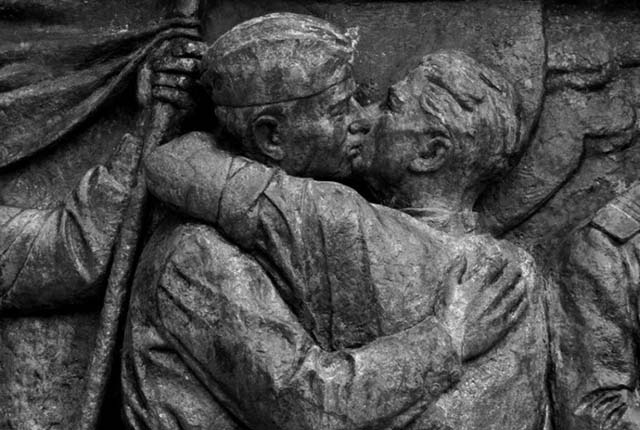
On May 29th, during his visit to France, Putin showed his knowledge of history to French President Emmanuel Macron. “The ties between France and Russia have deep historical roots,” Putin said. And to reinforce his assertion, he cited Anna of Kiev, the second wife of the king Henri I of France, who reigned for a decade during the 11th Century. For the occasion, the queen was renamed “Russian Anna”.
Too bad, Anna has no relationship with modern Russia. As her name suggests, she was the daughter of Yaroslav I, king of Kievian Rus’, and Ingegerd Olofsdotter of Sweden.
In the eleventh century, Kiev, where Anna was born and grew up, was the capital of a great medieval state from which today’s Ukraine and Russia would be born.
Putin’s, however, was not a lapse.
Not even a state
Putin has never made a secret he considers Ukraine as a part of Russia. Remain remarkable the words he said to George W. Bush during a NATO summit in 2008: “George, you do understand, Ukraine is not even a state. What is Ukraine? Part of its territories is Eastern Europe, but the greater part is a gift from us“.
The annexation of history of Ukraine is part of a clear geopolitical view. It accompanies the physical annexation of territories. The argument is basically the same already used to justify the military annexation of Crimea in 2014. On that occasion, the reason was Prince Volodymyr the Great, who was baptized in a Crimean town in the 11th Century. But even then, Putin had missed the fact that Volodymyr also ruled over the Kievian Rus’.
The narrative that seeks to find a “natural” reason for Crimea to be considered Russian is the basis of a violent act condemned by the entire international community. Likewise, we have seen using similar arguments during the Donbass war, arguing the cultural distance of that region from Kiev to justify Russia-sponsored separatism.
Everything is Russia
Re-writing history is a political weapon, we know. A weapon already extensively used in Soviet times, but that is finding a new use in post-ideological era of Putinism.
Soviet history books have always described the Rus’ of Kiev as the cradle of Slavic civilizations in modern Russia, Belarus and Ukraine. And always in this order. One way to give a reason for the predominance of Russian culture and language in the three Soviet socialist republics.
But in Putin’s Russia – when Anna of Kiev becomes “Russian Anna” and Volodymyr the Great almost a czar – the story of that Eastern European region ends up erasing cultural diversity and homologating everything under the “Russian” label.
As the Kremlin’s foreign policy has demonstrated in recent years, it is a way to say that national borders don’t matter when they cross the Russkiy mir, the “Russian world”. And that if Ukraine (and Belarus) doesn’t have its cultural heritage and political history, then it is not even a State.
The next step is to rewrite national borders.
@daniloeliatweet
On May 29th, during his visit to France, Putin showed his knowledge of history to French President Emmanuel Macron. “The ties between France and Russia have deep historical roots,” Putin said. And to reinforce his assertion, he cited Anna of Kiev, the second wife of the king Henri I of France, who reigned for a decade during the 11th Century. For the occasion, the queen was renamed “Russian Anna”.






